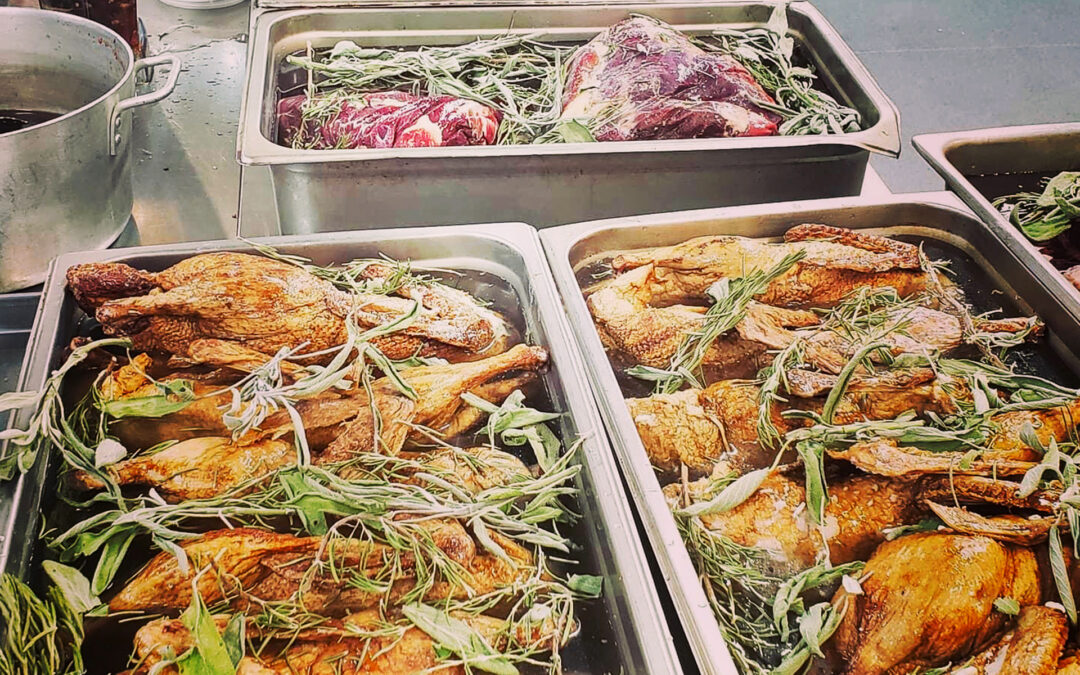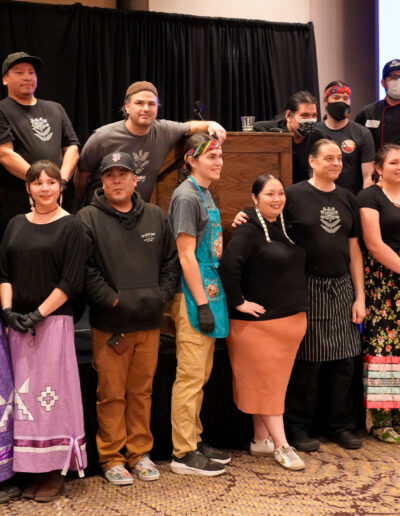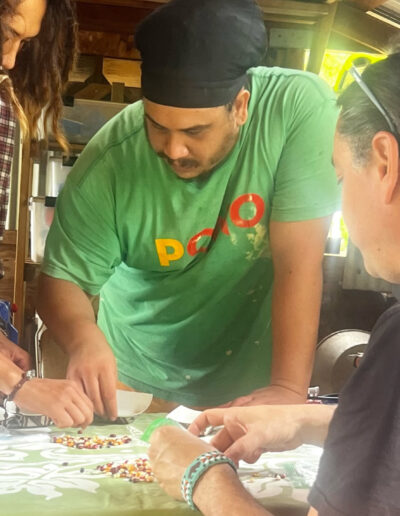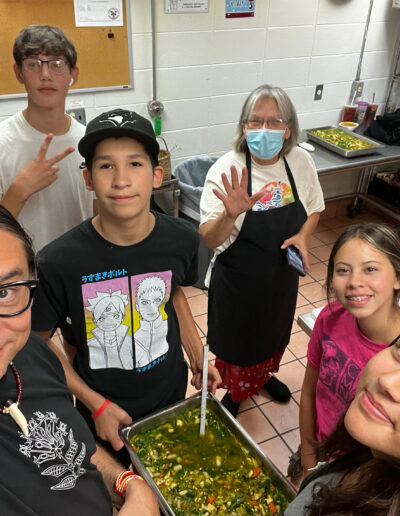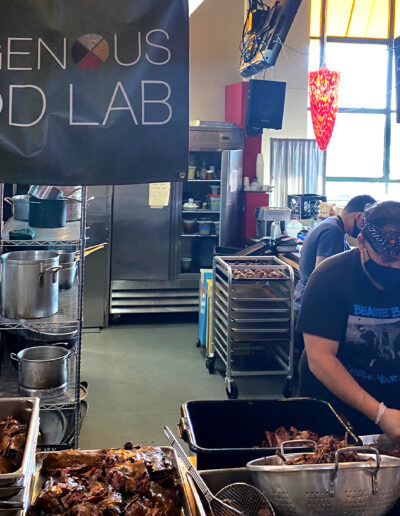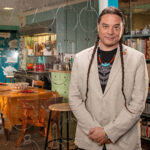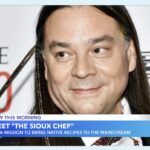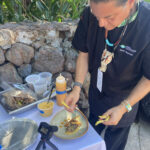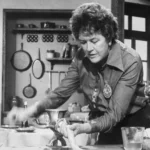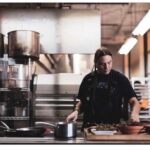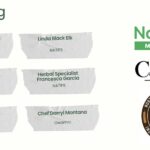Food access and justice are inextricably intertwined. By providing education and training to give Native people access to healthy, local, Indigenous food, we can not only address serious issues of malnutrition, food-related illness, and economic impoverishment on tribal lands – we can also use our shared heritage to build bridges and build power within and between Native communities and our allies.
Enter the Indigenous Food Lab (IFL) in Minneapolis, which opened in 2020. IFL is the first of its kind — a place uniting Native people around our common food heritage and its ability to bridge the tradition of our past with the promise of our shared futures. The vision? Food business development and economic empowerment that provides Native people across North America with access to healthy Indigenous food, preserves Native food traditions, addresses the health crisis on Native lands caused by subsidized commodity agriculture, generates wealth for Native communities, and connects and unites geographically dispersed Native communities around a shared heritage.
The IFL includes a professional Indigenous kitchen and training center covering all aspects of food service, research and development, Indigenous food identification, gathering, cultivation, and preparation; and all components of starting and running a successful culinary business based around Native traditions and Indigenous foods. At IFL, we’ll offer classes on Native American agriculture, farming techniques, seed saving, wild foods, ethnobotany, Indigenous medicines, cooking techniques, regional diversity, nutrition, language, history, health and healing.
The goal is to expand Indigenous Food Labs across the country, to support regional efforts to develop, implement, and maintain Indigenous food entities celebrating the plants, animals and food traditions of each area, which could be as small as a catering operation, or as large as a full-scale restaurant, depending on the means and resources of the community.
Developing Indigenous food enterprises across the nation will give communities access to healthy foods designed to represent their tribe, in their language, using their regional flavors, and giving them the resources to grow community gardens, create permaculture landscapes, process and preserve foods. This in turn will create more Indigenous food leaders and food processors to plug into our growing network.
All of our work is rooted in Indigenous Education, which begins with thousands of years of ancestral, regional knowledge passed down through countless generations, giving us the blueprint for healthy, sustainable, community-based lifestyles. Realizing the loss of our Indigenous Education through boarding and residential school assimilation efforts, on top of the current euro-centric led propagandic curriculum taught in schools today, it is imperative as Indigenous peoples that we define and share our own knowledge base. Steps toward the success of a healthier Indigenous future begins by replacing colonized thought by learning about our Indigenous histories that have been eliminated from history books in schools. Once we engage in this ancestral wisdom, we move into reconnecting spiritually, mentally and physically with the natural world. We then begin to understand and build Indigenous foundations of health so that we can regain, retain and share this practical knowledge. There is much to learn, such as food preservation, seasonal eating, using elements like wind, sun and smoke to cure and season foods, soil maintenance and seed saving. This will help us evolve our food systems into the modern day all the while protecting and honoring our natural resources.
Opening soon at the Minneapolis Indigenous Food Lab is our IFL Market, Spirit Kitchen for testing concepts, and our demonstration and training studio. This learning and sharing with other tribal communities and creating a network of sharing our vast knowledge with each other will help us all grow as Indigenous people. The more connected we are, the stronger we are. Learn more about the Indigenous Food Lab at NATIFS.org.

